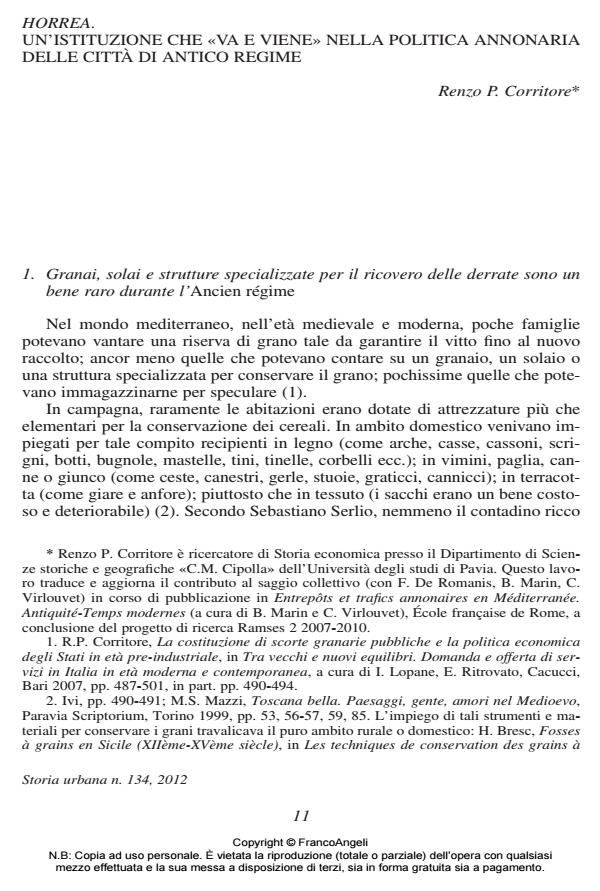Horrea. An institution that «comes and goes» in the provisioning policy of the cities of the old regime
Journal title STORIA URBANA
Author/s Renzo P. Corritore
Publishing Year 2012 Issue 2012/134
Language Italian Pages 19 P. 11-29 File size 506 KB
DOI 10.3280/SU2012-134002
DOI is like a bar code for intellectual property: to have more infomation
click here
Below, you can see the article first page
If you want to buy this article in PDF format, you can do it, following the instructions to buy download credits

FrancoAngeli is member of Publishers International Linking Association, Inc (PILA), a not-for-profit association which run the CrossRef service enabling links to and from online scholarly content.
Provisioning - Grain storage and distribution - Market - Urban history - Italian cities, 13th-18th century
How widespread the public granary in the north-central Italian cities during the XIIITH-XVIIITH century, it is sufficient for to questioning about the traditional idea of Annona. In the cities the creation of food stocks in excess in respect of the needs of consumers is a mirage. Granaries, warehouses, attics, specialized facilities for the storage of food are a scarce commodity. The distribution of the annual crop is unequal, the structure of grain stocks among particulars even more. Even where the governing class or authority manifests the will to set up a granary municipal (or statal), it is not possible to escape from the subsidiarity between public and private granaries, mainly because of the scarcity of spaces for grain storage. The establishment of a public granary on a permanent basis, it is more the exception than the rule in the cities of the old regime. If, however, a granary is created, or is this a temporary institution (as in a war economy), or it tends to become a fundamental economic lever to wich the ruling class assigns the task of stabilizing the market prices even in periods of oversupply.
- Practices, merchants and mercantilisms. Jews and the cereal trade in Trieste between Eastern Europe, the Po and the Mediterranean (18th century) Daniele Andreozzi, in Business History /2024 pp.672
DOI: 10.1080/00076791.2021.1932816
Renzo P. Corritore, Horrea. Un’istituzione che «va e viene» nella politica annonaria delle città di antico regime in "STORIA URBANA " 134/2012, pp 11-29, DOI: 10.3280/SU2012-134002